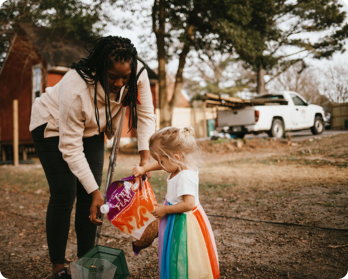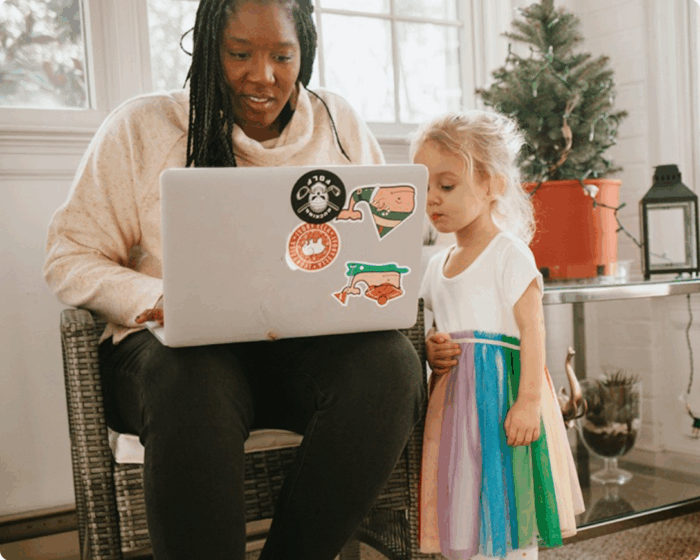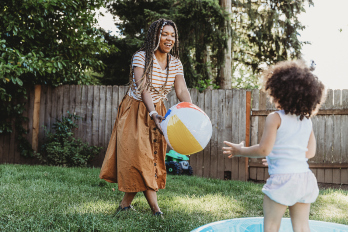Are you thick as thieves with your bestest buds, but you’re all struggling to buy a house on your own? Well, as the saying goes: A friend in need is the possible co-owner of a home. OK, that’s not exactly how it goes, and we promise to stop with the friendship puns, but you’re getting our point.
Owning real estate is the No. 1 way to create long-term wealth and stability — not just for yourself, but for the generations that follow you as well. And, despite what modern history has led us to believe, you don’t need a romantic partner, or go it alone to figure out how to save for a down payment, to become a homeowner.
With housing prices rising, buyers are coming up with all sorts of creative ways to buy homes. (We love this group who built a tiny house community together, affectionately dubbed “Bestie Row.”) So why wait? If you and a group of pals are ready to take the plunge but don’t have anyone to dive with, you may not need to look any further than each other. Below are two options to consider.
Get together and make a plan
Friends buying houses together is a growing trend, particularly among millennials. For some, it’s a more favorable way to get out of their parents’ house than renting. Others are living with roommates into their 30s anyway, so they might as well build equity in the meantime. Buying a home with friends can be a great alternative to footing a mortgage on your own, or waiting to find a significant other.
But since doing anything with a group of people can get complicated, it’s best to put as much in writing in advance as possible, with the help of a lawyer. Questions you’ll likely consider:
- Will ownership be split equally, or according to how much of the down payment each person invests, or another way?
- What about chores? Divvying up household tasks and establishing a shower schedule in advance can prevent disagreements down the road, and help everyone cohabitate happily.
- How will you resolve disagreements? You will have them. From decorating to maintenance to guests and more, everyone does! The important thing is to buy with housemates whom you can easily resolve them with — and discussing how you plan to do so in advance.
- What’s your exit strategy? Even if you all start with the same commitment, let’s be real: Things change. What happens if someone can’t pay their portion of the mortgage, or decides to sell their share and move out?
Answering these questions to everyone’s satisfaction up front is important to protecting your investment — not to mention your friendships.
Figure out your financing
You may be thinking: Is it more difficult to take out a mortgage with your buddies? Nope.
Each of you will be a “co-borrower” on the loan, which means that you are individually and collectively responsible for making the mortgage payments and other obligations of ownership. Each co-borrower must be an owner whose name is on the deed and other legal documents.
Gathering the financial documents for multiple people probably seems like a headache, but from a lender’s perspective, more co-borrowers might actually be better. It’s your combined income that will be used to decide how much you can borrow. This can be especially helpful if one of you is self-employed or works gigs that provide an uneven income. On the other hand, most lenders will use the lowest credit score from a group of co-borrowers in assessing the risk of the loan, which can affect your interest rate and other costs.
Decide on the type of home
The design of the home, whether it’s a private house, condominium (condo), or cooperative unit (co-op), is especially important for shared housing. Is there enough space and arranged to fit everyone’s needs and lifestyles?
In a condo, you own the interior of your individual unit — typically an apartment or townhouse. You become a member of an owner’s association, which is responsible for the building’s exterior, common areas, and grounds. You pay a monthly association fee that covers exterior maintenance and amenities that are shared by all of the condo owners.
Co-ops are most common in major cities like New York, Washington, D.C., and San Francisco, but the concept may seem confusing to those who live in places where they’re less familiar.
Here’s the tea: Rather than buying an apartment in a multi-family complex, co-op members purchase shares in a corporation, which gives them the right to occupy a designated unit under what’s called a “proprietary lease.” They pay monthly dues for maintenance, insurance, and other bills, and an elected board makes general decisions, like who can buy in and when to replace a roof.
So, are people actually doing this? Yes! More than a million families currently live in co-ops around the country, according to the National Association of Housing Cooperatives, and starting a co-op might be easier than you think. All you need is some determination and a few like-minded folks to join the flock!
Organizations like Co-operative Housing International are working to encourage a national co-op movement. Their mission is to help homeowners everywhere reap the benefits of this type of housing, which can include everything from social inclusion (think, group activities and shared childcare!) to government subsidies in return for affordable housing.
And co-ops aren’t only in apartment buildings, they can be in any kind of multi-family complex. Farms can be co-ops, as can mobile home parks.
So what do you think? Buying with a best friend? Or prefer to go it alone? Either way:
- For more alternative buying methods, our list of creative ways to afford your dream home offers great ideas.




